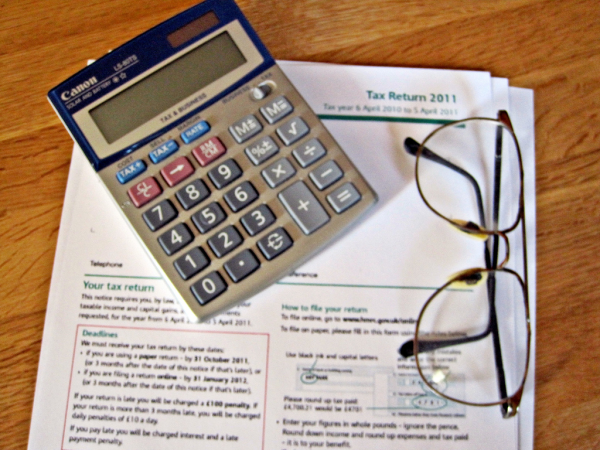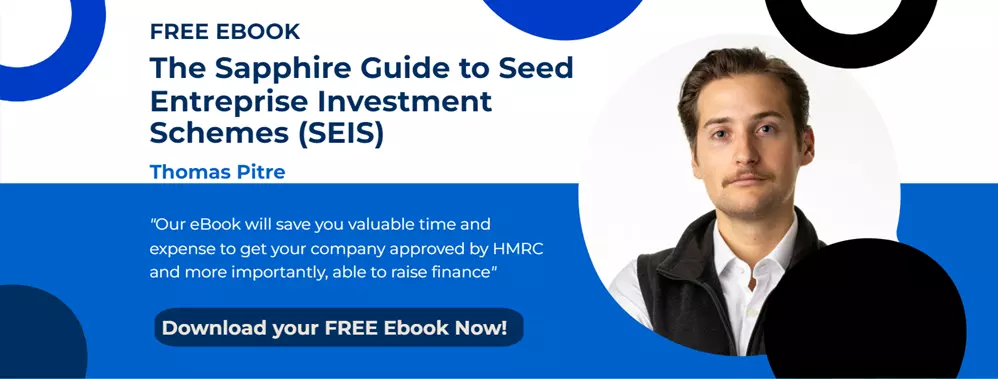At Sapphire Capital we have carried out many Enterprise Investment Scheme ("EIS") and Seed Enterprise Investment Scheme ("Seed EIS") advance assurance applications to HMRC. This has primarily been for clients (and for ourselves) in a diverse range of trading activities such as technology, renewable energy, construction, restaurants, shops, nurseries etc. Over the years we have learned through experience that there is certain information that is required to be submitted to HMRC on making the application, otherwise HMRC will most likely come back and ask for more information. Any delay can add weeks to the application process. It is important to get it right the first time as many investors will not invest in a company unless the company has received advance assurance from HMRC.
When applying, there is certain information which you will need to provide to HMRC. From our experience, we have provided you below with a list of the top 10 that you should definitely provide to HMRC. Of course, depending on your circumstances, not all will apply.
-
Details of the trade in which the Enterprise Investment Scheme or Seed Enterprise Investment Scheme company is operating in. Not all trades are permitted for Seed EIS or EIS purposes - these are known by HMRC as "excluded activities". Consequently HMRC will require a detailed description of the trade. Activities such as financial services, dealing in land, property development, operating and managing hotels and nursing homes are all excluded activities. A more detailed list can be found on this HMRC webpage. It is best to submit a comprehensive business plan detailing the business and its trade. For Seed EIS companies, any trade being carried on by the company at the date of issue of the relevant shares, must be less than two years old at that date. This condition applies whether the trade was first begun by the company, or whether it was first begun by another person who then transferred it to the company. Also the company must not have carried on any other trade before it started to carry on the new trade.
-
Confirmation that the trade of the business currently is (if it is trading) and will be carried on wholly or mainly in the UK. It is possible for a foreign based company to qualify for Enterprise Investment Scheme and Seed Enterprise Investment Scheme reliefs, however, the foreign company must have a permanent establishment in the UK. This would require the company to either have a fixed place of business in the UK, through which the company's business is wholly or partly carried on or the foreign company has an agent acting on behalf of the company (and the agent has and continues to enter contracts on behalf of the company).
-
Provide a financial forecast which shows the various income streams. This is not always asked for, but if the company is seeking advance assurance for an Enterprise Investment Scheme and intends to raise a large amount, such as the full £5m, then it is highly likely HMRC will ask for this. However for the smaller SEIS applications HMRC often do not ask for detailed financial forecasts.
-
Provide a copy of any shareholders agreements which will be entered into between the company and its investors. If there is not going to be one - make sure you state that there is not going to be one - it will avoid the question being asked.
-
Provide a copy of the company's articles of association. If the company is using the model articles under the Companies (Model Articles) Regulations 2008, then you should state this in order to avoid HMRC asking to see a copy.
-
Provide a copy of the Certificate of Incorporation of the company. If you are applying for Seed EIS this will clearly demonstrate that the company is less than two years old which is a requirement under the HMRC rules for Seed EIS companies.
-
Confirmation that the company is a private unlisted company and that there are no arrangements for its shares to obtain any listing.
-
Details of the directors of the company. If there are any other companies which are providing services to the Seed EIS or EIS company, and they have directors in common, then an explanation of the relationship between the two companies should be provided, especially in regard to renumeration. If there are agreements in place, then it is advisable to submit a copy of these arrangements. If the directors are providing any consulting services to the company, any fees taken would need to be "arms length" to avoid a challenge to the eligibility of the EIS shares under the "return of value" provisions.
-
Details of the gross assets of the company. For Seed EIS companies, the gross assets of the company must not exceed £200,000 before the issue of eligible shares and the company must not have more than 25 full time (or equivalent part-time) employees. For EIS companies the gross assets of the company must not exceed £15 million before the issue of eligible shares, or £16m afterwards and the company must not have more than 250 full time (or equivalent part-time) employees.
-
Details of the existing and proposed share capital of the company. Details should be provided on how many shares will be issued and whether the subscribers for the company's ordinary shares are likely to consist of individuals who wish to claim EIS or Seed EIS relief.
At Sapphire Capital we specialise in helping our clients apply to HMRC for advance assurance approval of both the Seed EIS and EIS schemes. We will also help you write the information memorandum and get it professionally branded. We can also assist in helping you raise capital.



